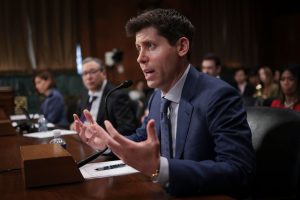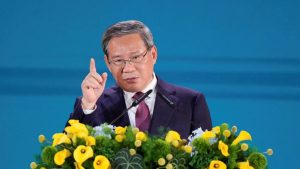France finds itself at a critical political juncture, grappling with a deep political crisis that led to the downfall of Michel Barnier’s government. President Emmanuel Macron’s response to this turbulence was the appointment of Francois Bayrou, a seasoned centrist politician, as the new Prime Minister. This move signals a strategic shift in Macron’s approach to governance, aiming to navigate the complex political landscape and forge a path towards stability. Bayrou, leader of the Democratic Movement (MoDem), brings a wealth of experience to the role, having served as a minister and contested the presidency three times. His immediate task is to engage with various political factions, including the far-right National Rally, to build consensus on the crucial 2025 budget and the composition of the next government. This endeavor will test Bayrou’s political acumen and ability to bridge the ideological divide within the French political spectrum.
The selection of Bayrou reflects Macron’s calculated attempt to inject a fresh perspective into the political discourse and possibly break the deadlock that paralyzed Barnier’s administration. Bayrou’s centrist stance, combined with his extensive political background, positions him as a potential unifying figure capable of fostering cooperation across party lines. This strategic appointment carries significant weight, as the country faces mounting pressure from the European Commission to address its burgeoning debt, projected to reach a concerning 6% of GDP this year. Macron’s choice signals a recognition of the need for a different approach, one that prioritizes dialogue and consensus-building to steer France through these challenging economic times. The success of this strategy, however, hinges on Bayrou’s ability to effectively navigate the competing interests of different political factions and forge a path towards fiscal responsibility.
Bayrou inherits a complex and challenging political landscape from his predecessor, Michel Barnier. The primary hurdle remains the formation of a stable and cohesive government capable of weathering the political storms and addressing the country’s pressing economic woes. The looming pressure from Brussels to rein in France’s escalating debt adds another layer of complexity to the situation. Bayrou must tread carefully, balancing the need for fiscal prudence with the demands of various political stakeholders. The delicate balancing act requires a deft political touch and a keen understanding of the intricate dynamics within the French political system. His success will depend on his ability to build bridges, foster compromise, and ultimately create a government capable of effectively addressing France’s economic challenges while maintaining political stability.
The task ahead for Bayrou is not simply to replicate Barnier’s approach but to chart a new course. The focus must shift from reactive crisis management to proactive policymaking. This requires a fundamental change in the government’s operating philosophy, moving beyond short-term fixes to address the root causes of France’s economic difficulties. A critical aspect of this shift involves garnering broader support for necessary reforms, not only within the government but also across the wider French populace. Building this consensus requires clear communication, transparency, and a genuine commitment to addressing the concerns of all stakeholders. Bayrou’s success hinges on his ability to articulate a compelling vision for France’s future, one that inspires confidence and fosters a sense of shared purpose.
Beyond the immediate challenges of forming a government and tackling the national debt, Bayrou must also address the underlying political fragmentation that has plagued France in recent years. This necessitates a long-term strategy focused on rebuilding trust in political institutions and fostering a greater sense of national unity. A crucial step in this direction is engaging in meaningful dialogue with diverse political factions, not just to secure short-term political gains but to cultivate a culture of cooperation and mutual respect. This requires a move away from the divisive rhetoric that has characterized much of recent French political discourse and towards a more constructive and inclusive approach. Bayrou’s success as Prime Minister will ultimately be measured not just by his ability to address immediate economic concerns but also by his ability to lay the groundwork for a more stable and unified French political landscape.
The appointment of Francois Bayrou as Prime Minister marks a pivotal moment in French politics. It represents a bold gamble by President Macron, placing his faith in a seasoned centrist to navigate a treacherous political landscape and steer the nation towards stability and economic recovery. The challenges ahead are formidable, but Bayrou’s experience, coupled with his commitment to consensus-building, offers a glimmer of hope for a more unified and prosperous France. The success of this endeavor will not only impact the immediate future of the country but also shape the political landscape for years to come. The world watches with anticipation, as the actions and decisions of this new Prime Minister will undoubtedly leave an indelible mark on the trajectory of France.










